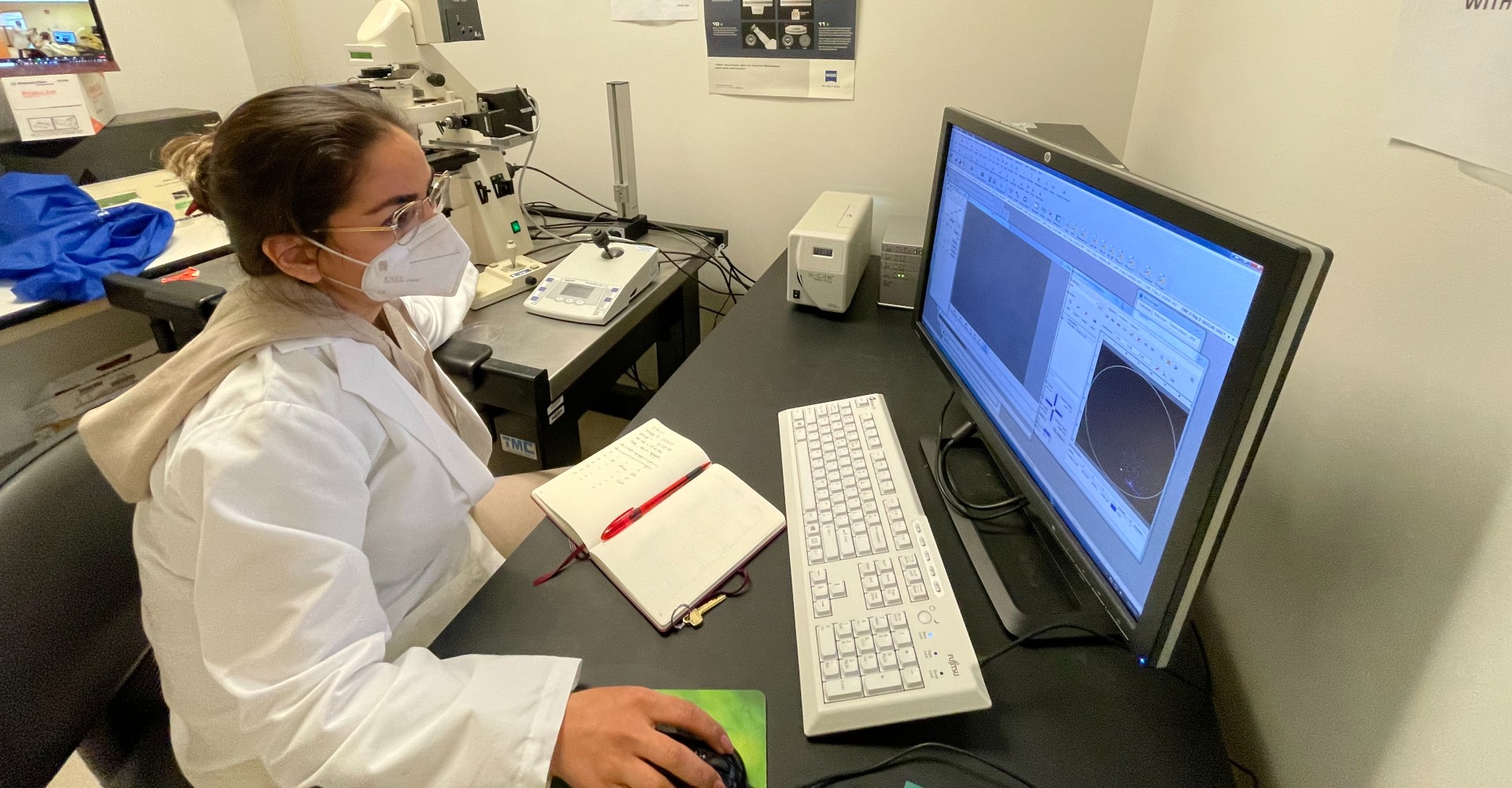Research
The diverse research being conducted at WPI’s state-of-the-art facilities reflects the multiple scientific disciplines within the field of biomedical engineering. Our research operation is strategically sized and offers an open lab environment. The atmosphere is more personal, collaborative, and interdisciplinary; it facilitates close interaction between students and faculty across disciplines, no matter what their focus of study or research.

Student & Faculty Interaction
One-on-one interaction with faculty is the norm in WPI’s collaborative and innovative lab environments.
Biomedical Engineering Offers Many Paths
WPI specializes in three areas of biomedical research: Biomaterials and Tissue Engineering, Biomechanics and Mechanobiology, and Bioinstrumentation and Signal Processing. Students choose the path that offers the best fit for their career goals and their interests.
Biomaterials and Tissue Engineering
Several BME researchers at WPI focus on creating biomaterials and engineered tissues for regenerative medicine and drug discovery applications. Research projects include engineered biomaterials for cell delivery and tissue repair (cardiac patches and skeletal muscle regeneration), microtissue models of normal and diseased human tissues (liver, cardiovascular, skeletal muscle and cancer), advanced biomanufacturing of cells, biomolecules, biomaterials, and tissue biofabrication. More recent interdisciplinary work focuses on the use of decellularized plant tissues as biomaterials, and exploring the plant-animal cell interface for the development of advanced biomanufacturing and tissue engineering processes.
Biomechanics and Mechanobiology
Biomechanics research at WPI focuses on measuring the effects of mechanical forces on skeletal and soft tissue remodeling, and using imaging data and computational tools to understand these effects in the context of human organ and tissue function. Projects include quantifying the effects of exercise and pathology (aging, injury and non-loading, such as in spinal cord injury) on bone remodeling and mechanics, modeling concussion injury in the brain, and applications of robotics in rehabilitative medicine and image-guided surgery. Mechanobiology research aims to understand the mechanical forces through which cells act on and respond to their environment within normal and diseased tissues (heart valve disease, cardiac repair, cancer).
Bioinstrumenation and Signal Processing
Bioinstrumentation research at WPI focuses on developing sensors for physiological monitoring (pulse oximeters, pressure ulcer sensors). Signal processing research extends to the application of quantitative microscopy and deep learning to identify cell phenotypes associated with health and disease (cancer metastasis, quality assessment for cell manufacturing). Quantitative microscopy and imaging, combined with microfabricated MEMS devices for whole organism studies (C. elegans), are being applied to enable high throughput analysis of neurobiology networks and behavior to model human neurobiology (sleep, autism).
Research Laboratories & Facilities
The state-of-the-art WPI Life Sciences and Bioengineering Center at Gateway Park offers
an open-plan lab format, while the presence of established and early-stage venture biotech companies encourages interdisciplinary collaboration. This is where the translation of research into practical application happens. This 124,600-square-foot space holds research laboratories that focus on non-invasive biomedical instrumentation design, signal processing, tissue biomechanics, biomaterials synthesis and characterization, myocardial regeneration, cell and molecular engineering, regenerative biosciences, and tissue engineering.
Laboratories include the following:
- Biomaterials fabrication and microfabrication (MEMS)
- Biomedical sensors and bioinstrumentation
- Cell culture and histology
- Medical imaging and microscopy
- Mechanical testing
- Motion capture and computational biomechanics
In addition, biomedical engineering faculty and students have access to other WPI facilities and resources, including the Biomanufacturing Education and Training Center and research laboratories located within the Robotics Program.
They may also access two WPI Gateway Park research facilities:
- PracticePoint houses point-of-care suites where industry-clinician-academic research teams will collaborate.
- Advanced Integrated Manufacturing (AIM) Photonics Lab enables rapid prototyping, testing, and training.